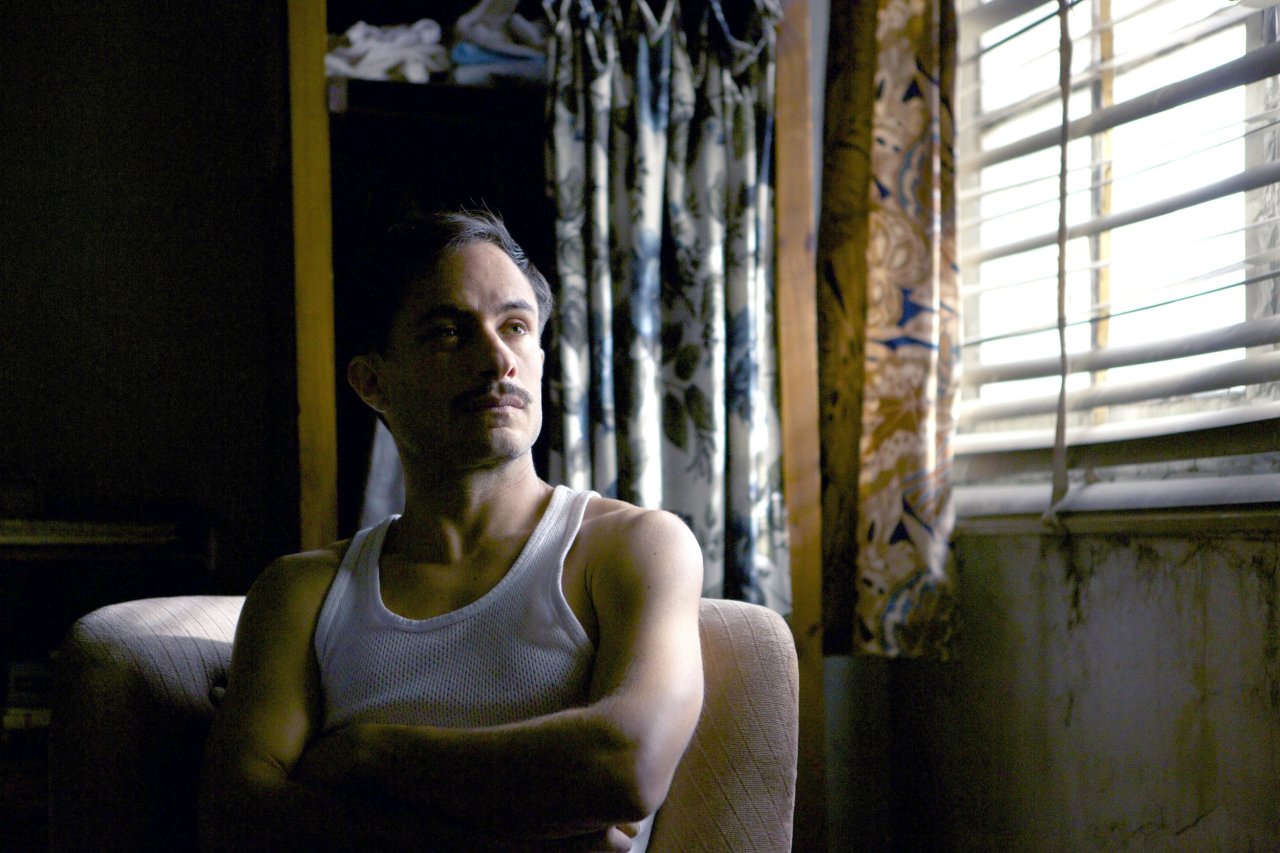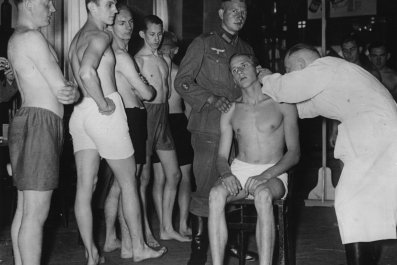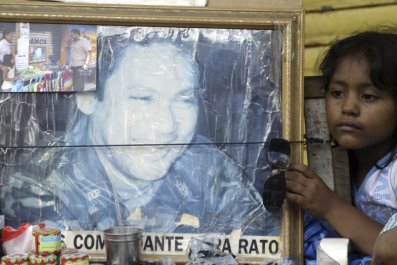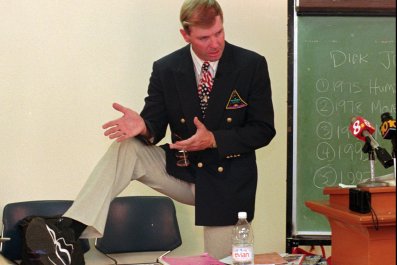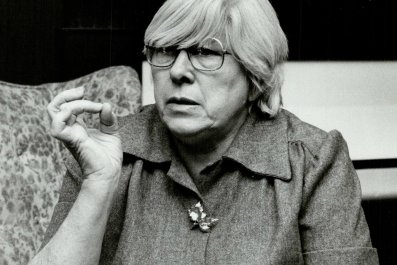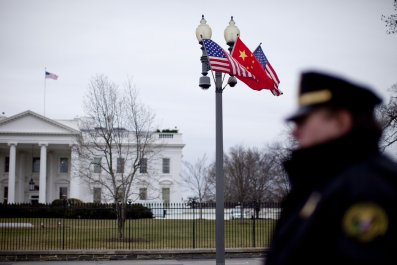The Chilean director Pablo Larraín made his international breakthrough last year when his first English-language film, Jackie , earned rave reviews and an Oscar nomination for its star, Natalie Portman. But Larraín's new biographical drama is even better. Like Jackie, Neruda focuses on a short period in the life of a political luminary—in this case, Pablo Neruda, the Chilean poet and politician who won the Nobel Prize in literature in 1971 and died in 1973. And, like Jackie , it examines how that luminary became a global icon. But of the two films, Neruda is the richer, stranger and more experimental. It has more laughs too.
Skipping past the poet's poor childhood and diplomatic career, the film begins in Santiago, Chile, in 1948, by which time the middle-aged Neruda (Luis Gnecco) is enjoying the status that comes with being both a Communist senator and the country's most celebrated writer. In parliament, even a visit to the men's toilets is an opportunity to out-argue his colleagues. And at home, he throws bacchanalian parties; portly, double-chinned and sporting a comb-over, he nevertheless dresses up as dashing Lawrence of Arabia.
But then Neruda's champagne socialism loses its bubbles and goes flat. Chile's president, Gabriel González Videla (Alfredo Castro), bans the Communist Party, and Neruda has to go into hiding with his wife, Delia (Mercedes Morán). Not that he is too upset by this new chapter in his biography. "This has to become a wild hunt," he declares, relishing the prospect of dodging the authorities and being feted as a daring, revolutionary fugitive. Whether this outlaw reputation will help the downtrodden Chileans he is supposed to be championing is another matter.
The running joke of the film, as written by Guillermo Calderón, is that the hunt is never quite as wild as the egotistical Neruda would like it to be. He is flattered to hear that there are 300 policemen on his trail and is particularly proud of the posters that denounce him as a traitor. "We have to save these," he instructs one of his co-conspirators. "They may have historical value." But as he shunts from safe house to safe house—between regular jaunts to bordellos and restaurants—he gets more and more irritated by the police's failure to catch him.
The police prefect responsible for this failure is Óscar Peluchonneau (Gael García Bernal), an antagonist invented by Calderón. Like Peter Sellers's Inspector Clouseau in the Pink Panther movies, Bernal's Peluchonneau is an earnest bumbler with a moustache and a fedora. He's a boy dressed up as a detective. In an exquisitely judged comic performance—eyes narrowed, chin jutting—Bernal's pint-sized Peluchonneau is always on the verge of being ridiculous, while barely hanging on to his dignity, even when he describes himself, in voice-over, as "the expert policeman" and "handsome Inspector Peluchonneau."
Here's where the film gets tricky. Peluchonneau doesn't just narrate his own scenes: We also hear his disembodied voice when Neruda is talking in private with his comrades, as if the policeman were watching the action on a screen and providing a DVD commentary. So what's going on? Are Neruda's adventures all a product of Peluchonneau's embittered imagination? Or is it the other way round? When Peluchonneau eventually apprehends Neruda's wife, she informs him that he isn't a real person, but a supporting character in a novel that the poet wrote long ago. Meanwhile, Sergio Armstrong's camera floats in circles around the cast like a prowling ghost, and Federico Jusid's wistful score plays with the melancholy air of a treasured, fading memory. As we watch, the truth of Neruda's real-life flight from Chile seems to metamorphose into myth.
These postmodern games will frustrate some viewers, but as slippery as Neruda can be, it is also a curiously touching study of its dogged, disappointed central characters. Sometimes, Larraín uses deliberately fake-looking back projection and dramatic bursts of orchestral music to present the poet and the policeman as the stars of a classic 1940s chase thriller. More often, though, the two men are locked together in an exhausting existential farce. By the time Peluchonneau has pursued his quarry into a snowy mountain wilderness, we could be watching The Revenant , as remade by Laurel and Hardy: sweeping, poignant, bizarre, funny and unique.
Worldwide releases continue to November 24.



